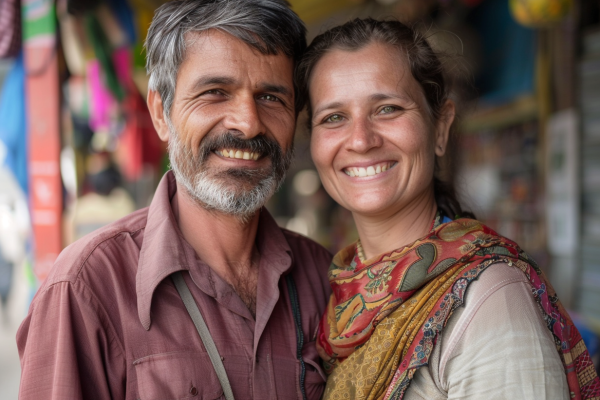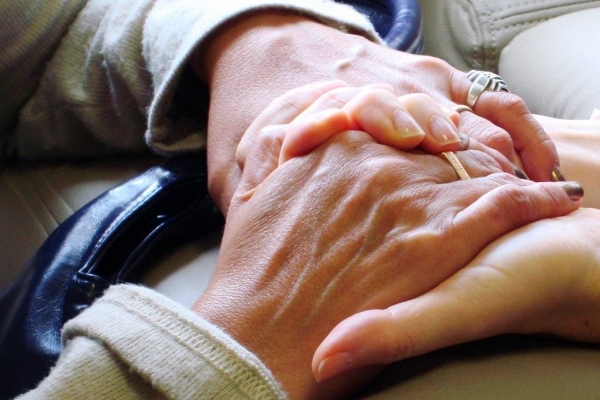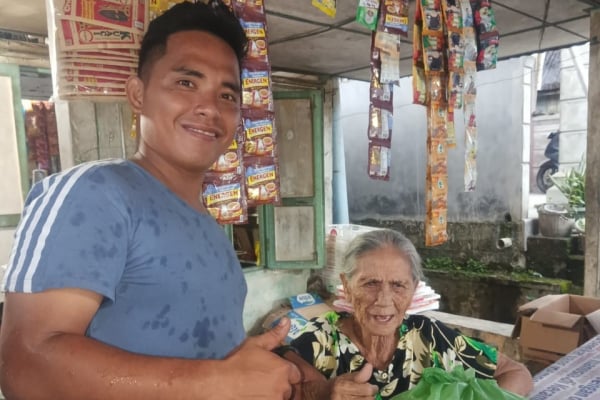
Empowered to Stay
How Member Care Helps Workers Remain in Difficult Places
“Sometimes, in highlighting the beauty and purpose of missions, we don’t talk about the cost to marriages and individuals. You’re going to face hardships. There are going to be things that just aren’t right. … It’s good that we don’t just sugar-coat it.”
Paul knows from experience. Any one of the challenges he and his wife, Shelley, faced on the field could have been enough to send them packing. And without the support of a fellow worker skilled in member care, their ministry among the least-reached could have easily been cut short.
During their first term in rural South Asia, Paul and Shelley lost two children to a rare genetic disorder. Their second term brought a snowballing load of stress and a string of crises that began as soon as they arrived back on the field.
One of their national partners had fallen into clear and intentional sin, and after Paul and Shelley confronted him, they became targets of slander. “It was just a very hard time, especially as a young leader confronting a well-respected national leader,” Paul recounts. “That really wore down on my soul.”
In the face of subsequent funding challenges, they were forced to let the director and three employees go—and to shoulder oversight for this ministry themselves in addition to leading another project. Amid these ever-growing responsibilities, a major earthquake hit. Shelley and a coworker traveled closer to the epicenter to translate for a foreign doctor. As aftershocks continued, they stayed in a tent and prayed for patients. Though they were able to powerfully live out their faith in Christ, “It was devastating time for the country and for us,” Paul recalls.
Their team shrank from 16 members to just three—Paul and Shelley included. Their lone coworker had just one more year of experience than they did, and the nearest Western men were eight hours away. In hindsight, Paul recognizes, “That was another deficit: not having men that understood me and my culture.”
As their team size shriveled, their security needs skyrocketed. Following 9/11, up to five guards were present on their property at any given time, and a police officer had to accompany them when they went to buy vegetables or visit others in their community. “That was another thing that slowly chipped away at us—just the weariness of it,” Paul recalls. “We stopped doing as much visitation because it made too much of a scene in the community.”
Then, there was the house fire—and the devastating realization that followed. “We discovered things that were odd: things out of place, evidence of kerosene. It just seemed very suspicious,” Paul recounts. “It became very clear that the guy who shared the pulpit with me—a very trustworthy, godly friend—had stolen some money and started a fire to cover it up.”
“That sent me into a deep spiral,” Paul recalls. At first, he denied he was dealing with depression, but by the time the couple arrived at a conference for all workers in the region, Paul could clearly see he needed help.
A Catalyst for Hope
God had already placed that source of help in Paul and Shelley’s lives: their friend Bonnie.* A fellow Christar worker, Bonnie served in a member care in another part of the country and had the compassion and skills to help them during their season of crisis. When she visited Paul and Shelley to help clean up after the fire, she caught a glimpse of both the ever-mounting challenges they’d faced and their perseverance in ministry in spite of hardship after hardship.
“Humanly speaking, it was horrendous,” Bonnie recalls. “How they handled it was amazing to me. … They proved themselves to be people who trusted the Lord. It was a real testimony to me.”
But she continues, “Then more and more things happened. It was just a horrible situation. It really affected the work there.” Bonnie continued to check in with her friends, and when she saw them face to face at the conference, she recognized the extent of their suffering. “Paul was just in terrible pain, she recalls. “I didn’t realize it was so dire.”
“I’m in a depression. I’m not doing well,” Paul confessed to Bonnie. “I’m reading my Bible, but I don’t really get anything out of it. My prayers are either unanswered or just not clearing the ceiling. I’m just not in a good place.”
Paul clearly recalls Bonnie’s grace-filled response: “God understands all you’ve gone through. Keep reading, keep praying. But I understand and God understands. Just don’t get out of the habit.”
By God’s grace, Bonnie already knew of a counseling center in the area, and she connected Paul with a counselor who could work with him over the long term. Bonnie’s listening ear and wise direction became the catalyst that helped Paul take steps toward healing. And in time, through counseling, Paul says, “The promises of God became a hope for me.”
“It wasn’t me,” Bonnie insists as she recalls that day nearly two decades ago. “The Lord just did it. I was there. … It was God’s timing.”
Bonnie commends Paul and Shelley for their willingness to seek and accept help. “They are humble and special people. They took the counseling and ran with it,” Bonnie shares. “They held tightly to the hand of Jesus. It probably did save their marriage and their ministry.”
Through their journey, Paul says, “Bonnie walked well with us.” She kept in touch in the months following the conference, providing encouragement and friendship. She was there as Shelley took on greater ministry responsibilities while caring for their young children and seeking to protect Paul from stress as he focused on his mental health—a sacrifice that gave Paul the space he needed to heal.
“Situations like Paul and Shelley’s are common, especially in hard places,” Bonnie explains. “Some people stuff it until it’s too much to handle. Paul was wise. He didn’t just cover it over. He was very brave. He didn’t in any way blame God. He looked at himself and did something about himself.”
Care That Enables Church-Planting
Nearly 20 years later, Paul and Shelley are still in ministry. In spite of the hardships they faced, they persevered in ministry in South Asia for another decade. When a visa denial prevented them from returning, they continued to minister from North America. Now, in addition to overseeing workers in South and Central Asia, they help recruit and train new workers. Their story is an asset in preparing new workers for the field.
As they share, they encourage would-be cross-cultural workers to be proactive about mental health while preparing for the field because they know that the stresses of cross-cultural ministry can magnify existing mental health issues as well as prompt new struggles. Going to the field equipped with tools to manage stress and navigate challenges enables these future workers to be better teammates and more effective in ministry.
But even when workers go to the field well-equipped, mental health challenges can still crop up, and the stresses of cross-cultural life can become overwhelming and isolating. And, as Paul and Shelley know, it can be difficult for workers to ask for help. That’s where member care comes in.
Workers skilled in member care, like Bonnie, serve as encouragers and connectors, helping those who are struggling to access resources and care. Bonnie talks about member care in terms of “putting others’ hands into the hands of the Lord,” and that’s just what member care workers do: They help those serving in difficult places experience God’s sustainment and hope.
This help is present not only in times of crisis but at every stage of Christar workers’ ministries. Member care staff nurture emotional, mental, social and spiritual well-being so they and their families can thrive in ministry and relationships.
This support is an investment not only in workers’ well-being but in the communities in which they serve for the sake of the gospel. As Paul says, “If we can care for and support our people well, they will be enabled to plant churches.”
Participate by Praying:
- Praise God for member care workers like Bonnie who serve as catalysts of hope that enable workers to remain in ministry in difficult places.
- Pray for wisdom for member care personnel as they come alongside workers facing crises and loss.
- Ask to provide the funds needed to care for workers well through gifts toward the Together to Thrive project.




















